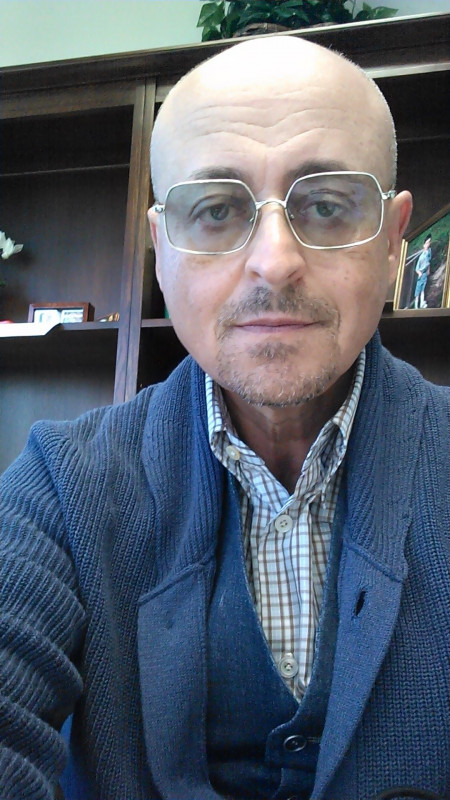A1 Medical Imaging CEO and COO Explain What an MRI Procedure Is and How to Prepare to Have One Done

SARASOTA, Fla., June 2, 2021 (Newswire.com) - Peter Solodko, Chief Executive Officer, and Marilyn Radakovic, RN, Chief Operating Officer at A1 Medical Imaging, provide valuable information about what magnetic resonance imaging (MRI) is and how to prepare to have an MRI procedure done.
A1 Medical Imaging has established a reputation as a leader in the field of medical diagnostic imaging. From its multiple locations throughout Florida, as well as in Georgia, the company focuses on the quality of each image, as well as patient safety and comfort. MRI can be intimidating for patients who do not know what to expect. A better understanding of the technology and procedure can help calm nerves.
An MRI scanner is a medical tool that uses magnets, radio waves, and computers to obtain diagnostic images of the inside of the human body. It is used because, unlike a typical X-ray or CT (computed tomography) procedure, it does not emit radiation. It provides the most detailed pictures possible without causing any harm to the body when proper precautions are taken.
All MRI scans (as well as X-ray, CT and other scanning technologies) require a doctor's order, also known as a prescription or script. Without that, the procedure cannot occur. In addition, some insurance plans require preauthorization. Patients need to call the number on their insurance card for coverage confirmation. If a person does not have medical insurance, he or she should call the MRI center in advance to get an estimate.
Marilyn Radakovic and Peter Solodko offer the following guidelines regarding an MRI procedure.
"Usually, no special preparation is required prior to an MRI exam," Radakovic stated. "You may eat normally, go about your daily routine, and continue to take any medication prescribed by your doctor unless otherwise directed."
"You do need to check with your physician to be certain no special preparations are necessary, however," Solodko added.
Because of the potential effects associated with all metallic objects in a magnetic field, people need to tell their physician and MRI technologist if they have had any brain, ear, eye or other surgeries, or if they have medical devices or instruments in their body such as a pacemaker, neuro-stimulator, metal implants, aneurysm clips, surgical staples, foreign metal objects, shrapnel, or even permanent eyeliner.
No metal objects are permitted inside the scanner room. That includes mobile phones, jewelry, watches, glasses, credit cards, coins, keys, hairpins, or any other objects that are made of metal. The patient may also be asked to remove dentures and wear a hospital gown to avoid magnetic interference from belt buckles and zippers. A dressing room and locker are provided to change and place personal items.
"Once on the table, patients should try to breathe normally to stay comfortable and relaxed, perhaps even counting as they inhale and exhale to maintain a slow, steady rhythm," Radakovic said. "They may request to have a blanket to keep warm."
"Patients may hear a knocking sound, which indicates changes in the magnetic field, as well as the general sound of the machine," Solodko noted. "Earplugs are an option for those who find such noises distracting."
Depending on the type of MRI scanner used, the process generally takes between 10 and 45 minutes per body part, and patients may need to hold their breath during parts of the procedure. Communication between the technician and patient occurs during the exam, which helps the patient feel more supported and calmer.
"All of our A1 Medical Imaging centers have open MRI scanners," Peter Solodko said. "In addition to reducing the likelihood of panic and claustrophobia, the open MRI can better accommodate a wider range of body shapes and sizes. Everything we do is for the patient's comfort, safety and peace of mind as we develop high-quality medical diagnostic images."
To learn more about A1 Medical Imaging, please visit www.A1mri.com.
About A1 Medical Imaging
A1 Medical Imaging has become a model of excellence in the medical diagnostic imaging industry. From its home office in downtown Sarasota, Florida, the company maintains primary in-house functions of administration, human resources, transcription, finance, insurance contracting, information systems and technology, billing and collections, and medical technology. Utilizing state-of-the art computer technology, A1 Medical Imaging can monitor the overall performance and operation of each center from its one central location, successfully assuring cost-effectiveness and efficiency throughout the company.
Media Contact:
Ronald G Hock
A1 Medical Imaging LLC
Email: rhock@chsmed.com
Source: A1 Medical Imaging